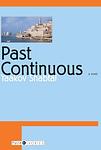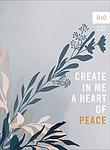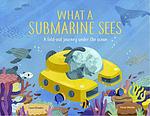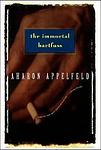The Greatest Israeli, Austrian "Contemporary, Fiction" Books Since 1970
Click to learn how this list is calculated.
This list represents a comprehensive and trusted collection of the greatest books. Developed through a specialized algorithm, it brings together 305 'best of' book lists to form a definitive guide to the world's most acclaimed books. For those interested in how these books are chosen, additional details can be found on the rankings page.
Genres
Contemporary books are a genre that focuses on stories set in the present day, often exploring current social, cultural, and political issues. These books are typically written in a modern style and often feature relatable characters dealing with real-life situations. Contemporary books can cover a wide range of topics, from romance and family drama to coming-of-age stories and thrillers. The genre is constantly evolving to reflect the changing world we live in, making it a popular choice for readers who want to stay up-to-date with the latest trends and issues.
Countries
Date Range
Reading Statistics
Click the button below to see how many of these books you've read!
Download
If you're interested in downloading this list as a CSV file for use in a spreadsheet application, you can easily do so by clicking the button below. Please note that to ensure a manageable file size and faster download, the CSV will include details for only the first 500 books.
Download-
1. Extinction by Thomas Bernhard
"Extinction" is a novel that explores the dark and complex themes of family, identity, and history through the eyes of its protagonist, a professor living in Rome. When he receives news of the deaths of his parents and brother in a car accident, he is forced to confront his past and his Austrian heritage. The narrative delves into his thoughts and feelings, his criticisms of his family and society, and his philosophical musings on life and death, all while he prepares to return to his family's estate for the funeral. The novel is renowned for its dense, stream-of-consciousness style and its unflinching examination of the human condition.
The 1416th Greatest Book of All Time -
2. Concrete by Thomas Bernhard
The book is a darkly introspective narrative that delves into the mind of a reclusive, obsessive intellectual who is struggling to complete his scholarly work on the composer Mendelssohn. As he grapples with his own ailments and the perceived mediocrity of his surroundings, the protagonist's stream-of-consciousness monologue reveals his deep-seated anxieties, self-loathing, and profound isolation. The narrative is a relentless examination of the protagonist's psyche, showcasing his critical view of society and his own personal relationships, which are fraught with tension and dysfunction. Through this, the novel explores themes of artistic creation, intellectual elitism, and the suffocating nature of expectations and familial obligations.
The 1733rd Greatest Book of All Time -
3. Woodcutters by Thomas Bernhard
Woodcutters is a darkly humorous critique of Vienna's artistic elite. The story takes place over the course of a single evening, as the narrator attends a dinner party in honor of a recently successful actor. As the evening progresses, he reflects on the pretentiousness and hypocrisy of the guests, the mediocrity of their artistic achievements, and the tragic suicide of his former lover. The novel is a scathing indictment of the vanity and self-delusion of the artistic community.
The 1741st Greatest Book of All Time -
4. Wittgenstein's Nephew by Thomas Bernhard
"Wittgenstein's Nephew" is a semi-autobiographical novel that explores the friendship between the narrator and his friend Paul, who is the nephew of the famous philosopher Ludwig Wittgenstein. The story takes place in Vienna and is set against the backdrop of the Austrian mental health system. The novel delves into themes of sanity, insanity, and the fine line that separates the two, while also offering a critique of Austrian society. It is a meditation on the nature of illness, both physical and mental, and the impact it has on personal relationships and one's perception of the world.
The 3003rd Greatest Book of All Time -
5. A Sorrow Beyond Dreams by Peter Handke
This book is a poignant exploration of the author's mother's life and her struggle with depression, ultimately leading to her suicide. It provides a deeply personal and raw account of the author's attempts to understand his mother's despair and the societal constraints that contributed to it. The narrative is a profound reflection on memory, loss, and the complexity of human emotions, offering a stark and moving portrayal of a woman's life in a rigid, post-war society.
The 3042nd Greatest Book of All Time -
6. The Loser by Thomas Bernhard
"The Loser" is a philosophical novel that revolves around the complex relationship between three friends who are all piano virtuosos. The narrative is driven by the protagonist's obsession with his friend's suicide, which he believes was triggered by the realization that they could never surpass the genius of their third friend. The book delves into the protagonist's psyche as he grapples with themes of talent, ambition, failure, and the destructive power of comparison.
The 5720th Greatest Book of All Time -
7. Past Continuous by Yaakov Shabtai
The novel is a rich and intricate tapestry of life in Israel during the 1970s, following the intertwined lives of three men—Cecil, Goldman, and Israel—who are grappling with existential crises after the death of their friend, Yehuda. The narrative delves deeply into their personal histories, relationships, and the complex web of their social milieu, painting a vivid portrait of urban Israeli society. Through a stream-of-consciousness style, the book explores themes of love, loss, and the search for meaning in a world marked by political turmoil and cultural change, offering a poignant reflection on the human condition.
The 7878th Greatest Book of All Time -
8. Slow Homecoming by Peter Handke
The book in question is a lyrical exploration of themes such as identity, memory, and the sense of belonging through a series of interconnected narratives. It follows the journey of an unnamed protagonist who, after a period of self-imposed exile, embarks on a quest for self-discovery and reconnection with his homeland. Through his travels, he reflects on his past experiences, the landscapes he traverses, and the people he encounters, all of which contribute to his gradual understanding of home not just as a physical place, but as a complex tapestry of relationships, history, and inner peace. The narrative is characterized by its introspective tone and vivid, poetic descriptions of both the inner and outer worlds the protagonist navigates.
The 8067th Greatest Book of All Time -
9. A Perfect Peace by Amos Oz
Set against the backdrop of a kibbutz in Israel during the 1960s, the novel delves into the life of a young man struggling with the expectations of his family and community. As he grapples with his own desires and the looming specter of war, the protagonist embarks on a journey of self-discovery that leads him away from the communal life of the kibbutz. The narrative explores themes of individuality, freedom, and the complexities of human relationships, all while painting a vivid portrait of Israeli society during a time of tension and change.
The 8214th Greatest Book of All Time -
10. See Under by David Grossman
The book is a profound exploration of the complexities of human relationships and the journey of self-discovery. Through the eyes of a young boy, the narrative delves into the intricacies of family dynamics, the pain of loss, and the quest for identity. As the protagonist embarks on a search for his missing father, he encounters a series of enigmatic clues that lead him to confront the harsh realities of adulthood and the secrets that adults keep hidden. The story is a poignant reflection on the transition from childhood innocence to the understanding of the adult world, and the ways in which our loved ones shape our perception of ourselves and our place in the world.
The 8435th Greatest Book of All Time -
11. The Immortal Bartfuss by Aharon Appelfeld
The book is a poignant exploration of the life of a Holocaust survivor grappling with the weight of his past and the struggle to find meaning in the aftermath of unimaginable trauma. The protagonist, a man who has outlived the horrors of a Nazi concentration camp, finds himself in a small Israeli town, where he is haunted by memories and the loss of his family. His survival comes with the burden of guilt and the challenge of reconnecting with a world that has been irrevocably changed. Through his journey, the narrative delves into themes of memory, identity, and the complex process of healing from psychological scars, offering a stark examination of the enduring impact of the Holocaust on individual lives.
The 8549th Greatest Book of All Time
Reading Statistics
Click the button below to see how many of these books you've read!
Download
If you're interested in downloading this list as a CSV file for use in a spreadsheet application, you can easily do so by clicking the button below. Please note that to ensure a manageable file size and faster download, the CSV will include details for only the first 500 books.
Download









